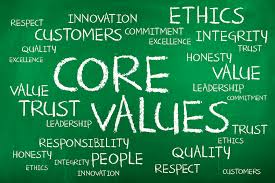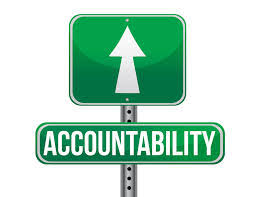The State of Corporate Board Performance and Accountability (Part I of IV)

It is perhaps fitting that we are coming up on the one-year anniversary of the Business Roundtable’s Restatement of Corporate Purposes, which was signed by 181 corporate leaders and widely-praised for its expansion of corporate ethics and values.
But I am sorry to say that not much has really changed. Some of this lack of action could be excused by the COVID-19 crisis and the focus on surviving the unprecedented economic disruption, along with the social upheaval. That is too easy of an excuse. I am still waiting for real business and ethics reform. Such change has to start at the corporate board level.
This week I am devoting four postings on a range of topics, concluding with 10 steps that should be taken to improve corporate governance in general, and board performance in particular.
I have devoted numerous postings to the problem of corporate board performance. All too often, we witness corporate corruption, scandals and failures with real and significant harm to stakeholders, employees, communities and the public.
In many cases, the corporate board bears responsibility. The degree of responsibility can range from direct involvement or knowledge of the misconduct to failures to exercise proper oversight and intervention in the face of known risks.
The role and operation of corporate boards should be reformed. There is no question the current system is anachronistic and a significant contributor to corporate malfeasance. The current system has evolved over the years with favorable corporate laws and regulations designed to protect board members from accountability. With the support of legal doctrines that insulate board members from exercising responsibility, a defensive approach to board governance and performance has evolved.
There are some cracks in the system that may increase with time and lead to more change. Social justice and other political movements will impact corporations and board membership. Corporate accountability in general is increasing and with that boards cannot escape scrutiny.

Corporate boards can no longer represent resting places for business executives at the end of their respective careers. Shareholders and other stakeholders have to demand reforms that bring corporate boards up to a modern age where board members: engage management in promoting strategic directions; ensure that compensation issues for senior management are appropriately handled; ensure that board committees are staffed appropriately and carry out assigned responsibilities; and the board conducts a robust self-evaluation process.
Corporate board performance is under the microscope during the COVID-19 crisis. In the face of serious risks and consequences from COVID-19, corporate boards have to navigate these difficult times with crisis management and serious risks.
Corporate boards are adept in identifying situations when they need to protect themselves from corporate scandals. Shareholder derivative suits are increasing with accuracy and identifying deficiencies in corporate board performance. As Delaware case law slowly evolves, shareholders, employees and stakeholders are joining to increase pressure on board members. This will continue and pressure will increase.
One basic reform has to expand – a prohibition on CEO dual-role as Chairperson of the Board. A company benefits from diverse perspectives and viewpoints. A CEO who also sits as Chairperson of the Board increases risks that the CEO’s view will dominate board activity and oversight responsibilities.

Board skill levels are often narrow with a hyper-focus on finance issues. While such a skill is obviously important, the singular focus on financial experience narrowly skews board performance and ignores other backgrounds in entrepreneurship, compliance, cybersecurity, technology and human capital.
One other significant trend is increasing board focus on environmental, sustainability and governance issues. Companies are increasing time devoted to ESG issues which is a welcome development but such a focus has to include ethics and compliance programs and issues.
While there is social and political pressure to improve corporate board performance, such reform efforts will likely increase as corporate corruption and scandals continue to increase and/or the US economy deteriorates.
















2 Responses
[…] Mike Volkov reviews Board performance in a 4-part series on Corruption, Crime and Compliance. Part 1, Accountability. Part 2, diversity. Part 3, challenges for Board decision-making. Part 4, steps […]
[…] Mike Volkov reviews Board performance in a 4-part series on Corruption, Crime and Compliance. Part 1, Accountability. Part 2, diversity. Part 3 , challenges for Board decision-making. Part 4 , […]